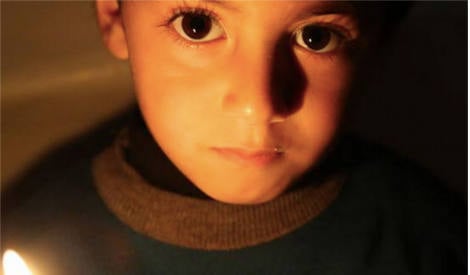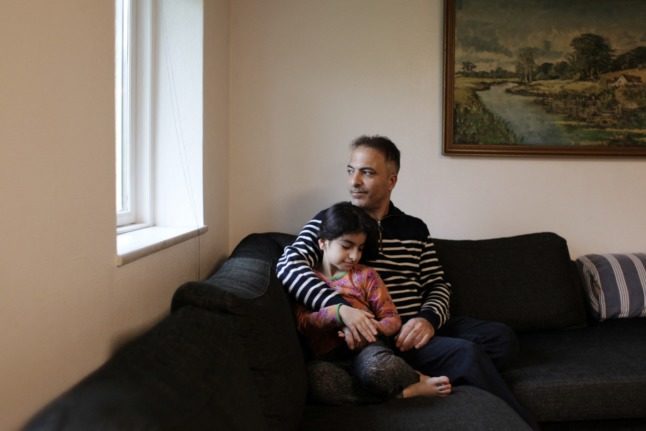SHIP
Norway marks three years of war in Syria
Norway's foreign minister will on Friday evening lead a candlelit vigil from the roof of Oslo's Opera House to mark three years since the start of the Syrian civil war, a conflict which has displaced 40 percent of the population and left more than 146,000 people dead.
Published: 14 March 2014 15:55 CET

A Syrian child whose image is being used in Norway's With Syria campaign. Photo: Facebook
Børge Brende will be joined by representatives from Amnesty International Norway, Norwegian People's Aid, Save the Children and the Red Cross, as well as other agencies, to mark three years since the Syrian regime launched its crackdown on anti-government protesters.
The event, which will take place simultaneously with events in Bergen, Trondheim, Kristiansand, Skien and Arendal, is part of the international #WithSyria campaign, with vigils planned across Europe and around the world.
Since clashes in March 2011 the crisis has descended into a civil war between President Bashar al-Assad’s government and a divided opposition which includes both citizen protesters and extremist foreign fighters.
While the UN has stopped updating its death toll, the London-based Syrian Observatory for Human Rights on Thursday said more than 146,000 people have now been killed.
On Friday morning Bård Vegard Solhjell, the head of Norway's Socialist Left party, proposed in parliament that Norway offer to increase the number of Syrian refugees it is accepting from 1,000 to 5,000.
There was quite broad support when we proposed 1,000, and I think it is evident that we should now accept more," he said. "We are now facing a war that's going to be a long one, and we in Norway have the financial ability to help."
Brende will travel to the Middle East on Monday, visiting Israel, the Palestinian territories Jordan, Egypt and Lebanon, as part of preparations for a donor conference for the Palestinian territories in June.
in Jordan and Lebanon he is scheduled to hold talks on Syria on how to best look after the refugees these two countries have accepted.
The Save the Children-led campaign has achieved widespread support with more than 2,000 people saying they will attend the vigil on Facebook.
Here you can view a gallery of vigils from around the world:
Url copied to clipboard!


 Please whitelist us to continue reading.
Please whitelist us to continue reading.
Member comments